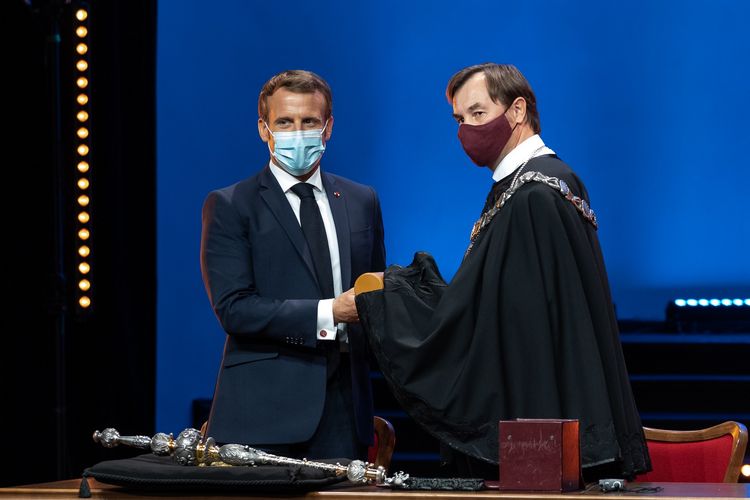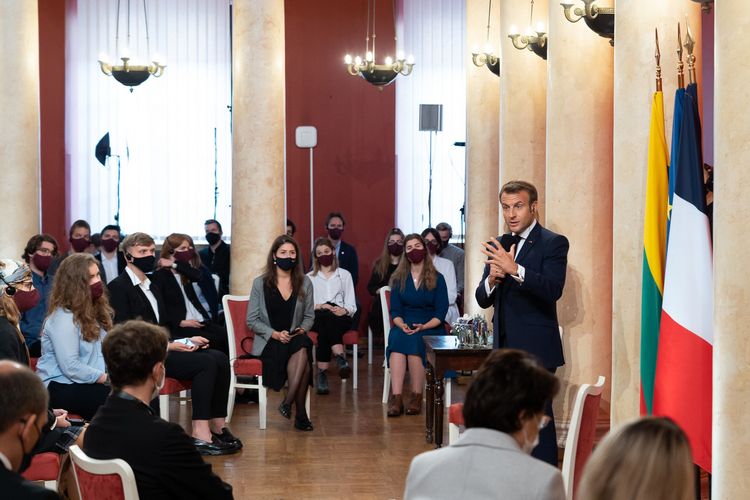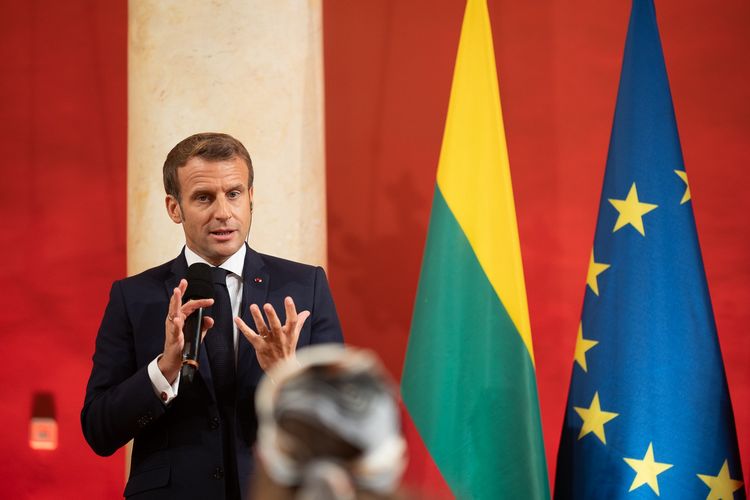In an exclusive discussion with students from Vilnius University, Macron debated the identity and future of Europe and the situation in Belarus. He underlined the importance of European cooperation. While answering the students’ questions, the President of France stressed the importance of unity on international and national levels, especially during such crucial times as the coronavirus pandemic.
“Of course, the current solutions are necessary and important to protect the majority, but we must be aware of the responsibility of everyone around us. We cannot leave an unstable Europe with debt or the effects of climate change to future generations,” Macron said during the discussion.
The French President emphasised the relevance of a united Europe and the role of the European University Networks. It is important to invest in knowledge and education in order to achieve good results in social and economic areas and thus find solutions for critical subjects in all European countries.
Macron’s initiatives in the field of education and higher education have been recognised not only by the leaders of the European Universities, but also by the European Commission. The French President was awarded the honorary degree of Doctor Honoris Causa at Vilnius University, both for his idea of establishing joint European University Networks and expanding the Erasmus+ exchange initiative, and for the continuous promotion of innovation in the field of education. In concrete terms, Macron’s aim is to increase student mobility with this initiative. He proposes that by 2024, 50 % of all university students should have spent at least half a year in another EU country. In addition, every European student should speak at least two foreign languages by 2024.
Following the European Commission’s first call for the establishment and funding of the European University Alliances in 2018, 17 networks were selected in the following year. Leipzig University established one of these networks together with the universities of Bergen, Granada, Graz, Lyon, Padua and Vilnius.
“Together, the seven universities are creating a solid basis for a new kind of cooperation that will not only influence students but also career opportunities, research quality and the integration of social and economic structures in our regions. We are working towards a systematic influence that implements long-term thinking and also encourages the other national systems of higher education to improve the quality of education, research and innovation,“ announced Arqus Alliance coordinator Dorothy Kelly.
Despite the impact of the COVID-19 pandemic, there have been a number of achievements on the way from Arqus to the formation of a European University Alliance. Good examples include the Arqus Open Mobility Agreement, which allows students to move freely between the seven partner universities, as well as the development of joint academic programmes and degrees and the successful application for Horizon 2020 funding, which strengthens joint research and innovation capacity.

































































